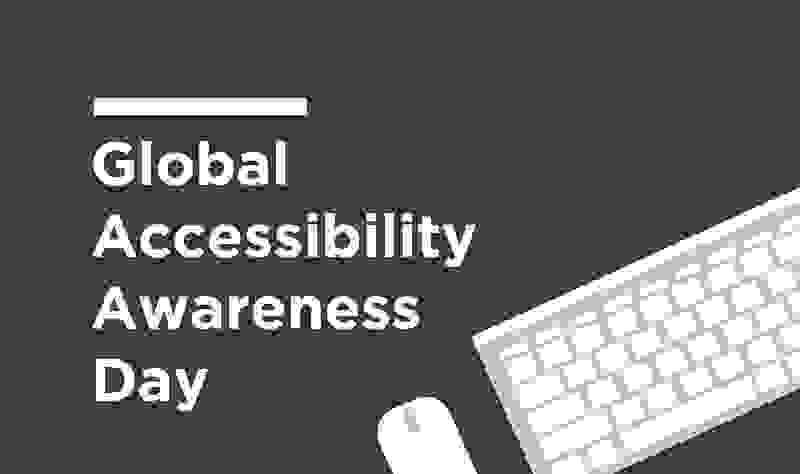Global Accessibility Awareness Day

Web accessibility refers to inclusion for all and according to Wikipedia, “is the practice of removing barriers that prevent interaction with, or access to websites, by people with disabilities.” This means that when sites are correctly designed, developed and edited, all users should have equal access to its information and functions. As designers and developers, it provides us with an opportunity to enable all people to get what they can out of the Internet. Too often however, this is being overlooked within the industry. As Global Accessibility Awareness Day is upon us, it is a good chance to ask ourselves why this is, as well as consider ways we can all move towards a future that makes digital access more inclusive.
Debunking the myths and misconceptions
"Accessibility only benefits a small portion of the user base"
- The moment accessibility clicked with me was the moment I realised that really, it’s about how to make a site for everybody, rather than for the smaller percentage of users that need it
- It is worth noting however, that the smaller percentage of users is not necessarily as small as we may think; 10% of the worldwide population, which is approximately 750 million people, have a disability that affects how they use the Internet (and that’s not including temporary disabilities)
- …there are also many other reasons why people may opt for accessible sites e.g. saving on bandwidth
"Accessible websites are difficult to implement"
- HTML, CSS and JavaScript are the three basic building blocks of any web-based project and are all you need to make a site accessible, you just need to be more thoughtful with how they are implemented
- If you learn the tricks and use them throughout the project, it shouldn’t take any longer than non-accessible builds
"Accessible websites are boring and unattractive"
- How pretty something is should not reflect how accessible something is. Yes, there are some simply-designed accessible sites out there, but there are also plenty of unattractive sites that are not accessible
- If a site is just text it is more accessible by nature, but as we shouldn’t discount visually impaired users when building a site, we also shouldn’t provide a lesser overall experience for those who are not
- Include great imagery for those who can see it and provide great descriptions for those who can’t!
Moving forward with web accessibility
One way to look at it is that web accessibility is just an extension of something that’s been a very hot topic in web design and development in the past few years – responsive web design to the nth degree.
When we make a site responsive, we are looking to make a site that looks great and works in as many different environments as possible. We’re talking mobile phones, tablets, desktops, laptops and different screen sizes. The nth degree would be to include the likes of screen readers and other assistive technologies too. As designers and developers, we all alter sites to work within the confines of different viewing devices, and this is just another extension of that. Every decision made has the ability to exclude someone; moving forward in design and development, the task is to take steps towards covering for this when possible.
The Internet is for everyone!
Web accessibility has a reputation for being something that’s time-consuming and hard to do, but it is important to remember that catering to a specific need can also have many SEO benefits as well as increased use of your web product, improved interoperability reduced server load and giving your company a good reputation. If we all think bigger about the techniques we already implement, we can start making the Internet something everybody can enjoy.
Join the conversation: #GAAD #GAAD2017 @gbla11yday